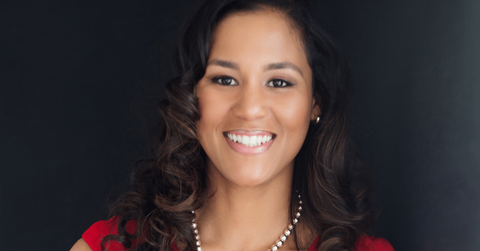Growing up, Rianka Dorsainvil, CFP®, never imagined that she would dedicate her career to helping others plan their financial futures. But she knew that she had a love for math and connecting with people.
Her interest in financial planning began when she took a finance course at Virginia Tech, during a time when credit card companies were still allowed to visit campuses and encourage students to get credit cards, even though they were still in college and most likely without a full-time job. With her newfound knowledge of credit scores, loans, and how they can impact your financial future, Rianka started giving her classmates financial advice. Now, she’s a CFP® pro and owner of the firm Your Greatest Contribution.
Rianka’s desire to help people reach their financial goals was evident in the first minutes of our interview. Her warm, welcoming, and compassionate demeanor completely diminishes the myth that financial advisors just spend their time crunching numbers behind a computer keyboard.
Her Agenda sat down with Rianka to learn more about her career as a CFP® pro, how millennials can begin saving for their retirement now, and what keeps her inspired to help others attain financial freedom.
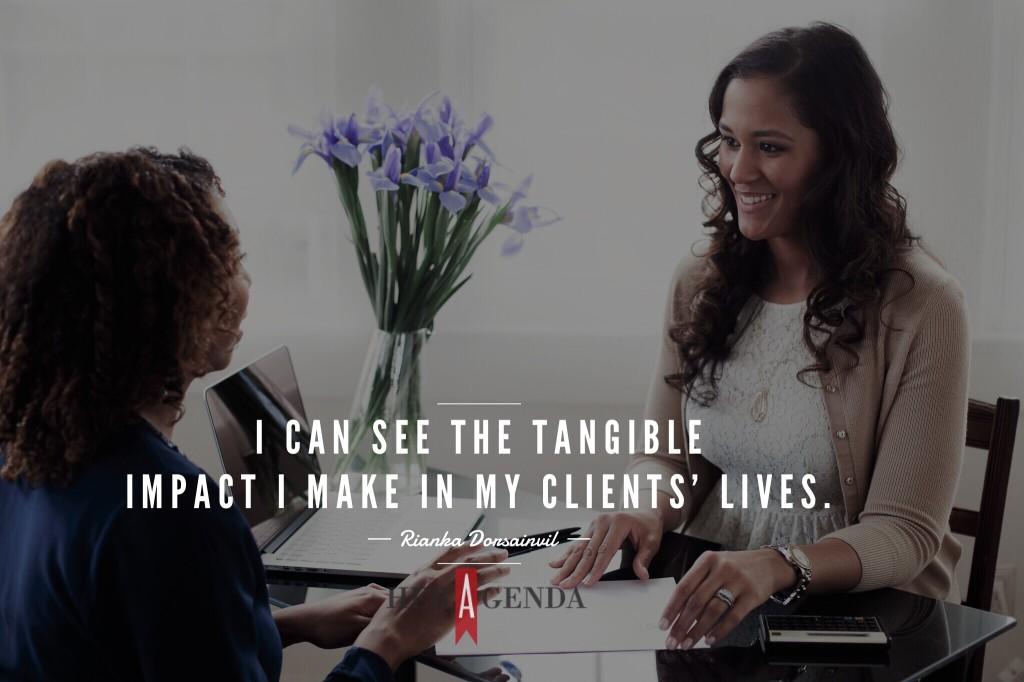
Her Agenda: What are your major responsibilities as a CFP® pro? What is the most challenging part of your job, and what is the most rewarding?
Rianka Dorsainvil: When you work with a financial planner, you want to work with someone who is dedicated and committed to that career. In order to be a CFP®pro, you must adhere to the four E’s: Education, Experience, pass an Exam (a one-day, six-hour test), and Ethics, the latter of which is one of the most important because it shows the standards you are held to as a CFP®professional. My job as a financial planner is to provide guidance and support around personal finances for clients, individuals, families, and small business owners, and to help them see that money is a tool and a resource for them to achieve their goals. It’s rewarding because I can see the tangible impact I make in my clients’ lives. CFP® pros are the ultimate advocates for their clients.
One challenge I frequently see is a belief among individuals that they are not qualified to work with a financial planner. Instead of seeking guidance from a CFP® pro, many people decide to handle their finances independently. I started my firm so that I can work with non-traditional clients—the clients who don’t have a million dollars in investable assets. I want to work with thriving young professionals who are ambitious and who want to make the transition from employee to entrepreneur and take control of their life and career.

Her Agenda: We are constantly inundated with news headlines proclaiming that millennials aren’t making major traditional purchases—everything from homes to diamonds. Why do you think that is, and how can millennials make small steps today toward a better, more secure financial future?
Rianka Dorsainvil: I focus on working with young professionals who don’t have the large nest egg. I like to refer to them as HENRYs—high earners, not rich yet. I chose to start my firm because I wanted to focus on empowering young professionals with their personal finances.
Something interesting I am seeing with our generation is that even millennials in their mid-30s are waiting to buy homes, get married and have children. In conversation with my peers at this stage, a lot of them ask: “Can we afford these things?”
The elephant in the room will always be student loan debt. Our generation has more student loan debt than any of our predecessors, and we’re just trying to figure out how to best navigate all of these competing financial goals. But millennials can start today. Even saving $100 a month will go a long way, because you are building a habit of putting money away. Compounding interest is your best friend right now because that money has the potential to sit and grow, compared to waiting 15 years from now—we could miss out on a lot of growth.
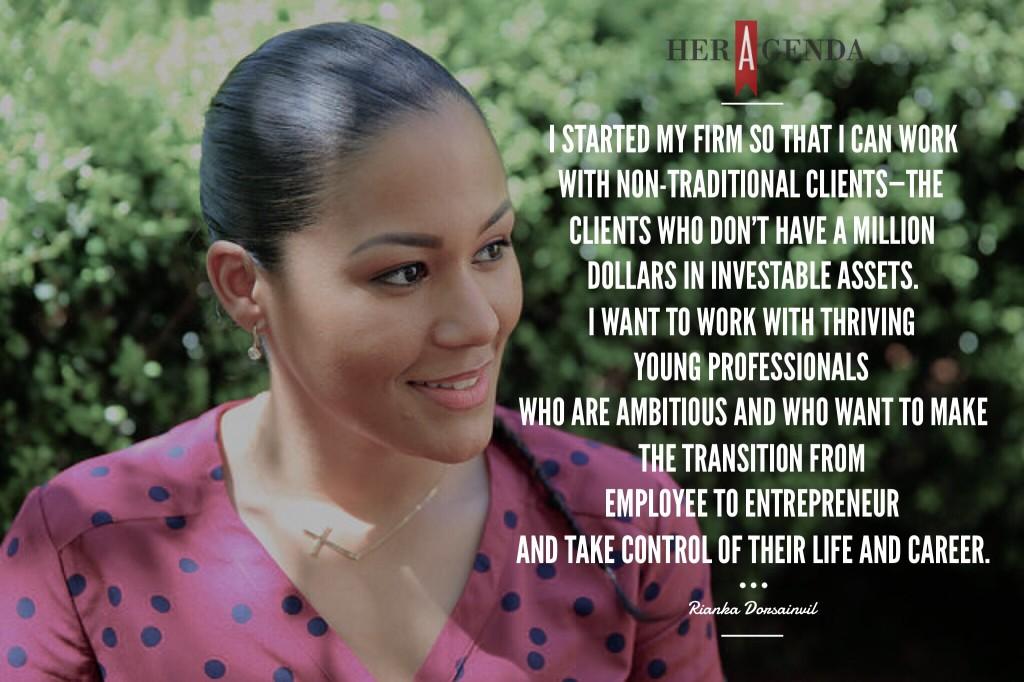
Her Agenda: Why do you believe millennials are afraid to talk finances?
Rianka Dorsainvil: It could be a situation of keeping up with the Joneses. You want to have a perception that you’re doing well based on your career, but the reality is, you go home at night and stress over being able to afford paying your rent and student loans. Some may not talk about it because their parents didn’t talk about it—so it could be a learned behavior.
Many of us didn’t see our parents go to a financial planner—I know I didn’t—and I think we need to be more vocal about people who are available to help navigate personal finance. Not every client is the right one for me, but as a CFP® pro, I will make sure that I refer them to someone who will be able to help.

Her Agenda: How do you become a CFP® pro and build your own business?
Rianka Dorsainvil: The beautiful thing about being a CFP® pro is that we’re still blazing trails. It’s still a very young profession, so you can make this career anything you want. Some people work for financial firms, others become adjunct professors and teach personal finance, or even work on the operational and technical side to build new financial systems. But the road most traveled is that of the financial planner and over time, you bring on clients. Most likely you’ll start as a paraplanner, or an associate planner, and be the assistant and learn how to talk about topics that aren’t always easy.
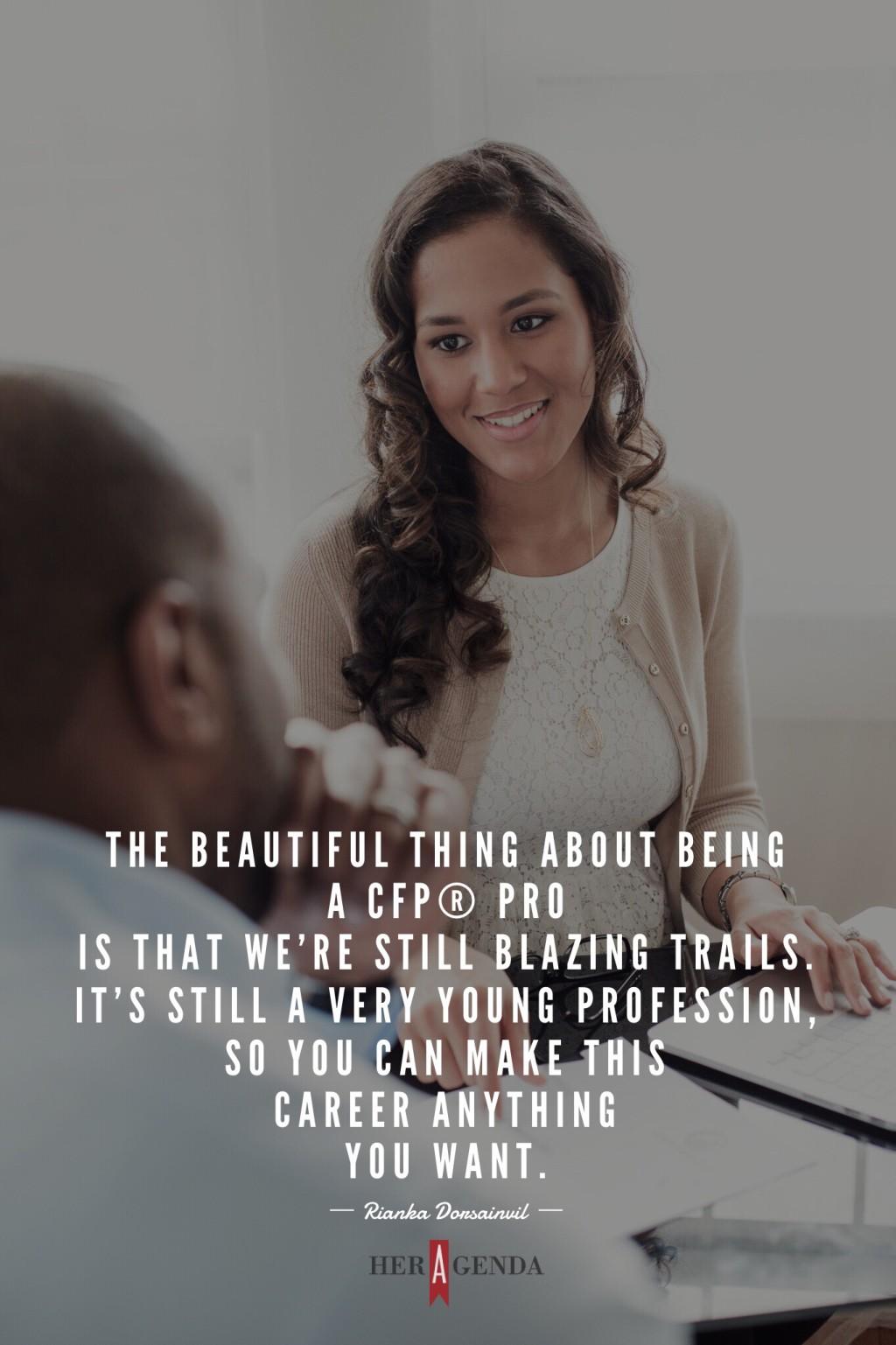
Her Agenda: What inspired you to pursue a career in finance, and who are some people that you look up to as mentors?
Rianka Dorsainvil: In college, I had no idea that financial planning was a profession. After bouncing around among a few different majors, I knew that I had a love for math and talking to people. I took one elective personal finance class and it blew my mind. That’s when I started learning about credit scores and how they are derived, disability insurance, retirement planning, and Social Security. I became so excited and went to my professor to see if I could take more classes, only to find out that there was an entire curriculum dedicated to becoming a CFP® professional.
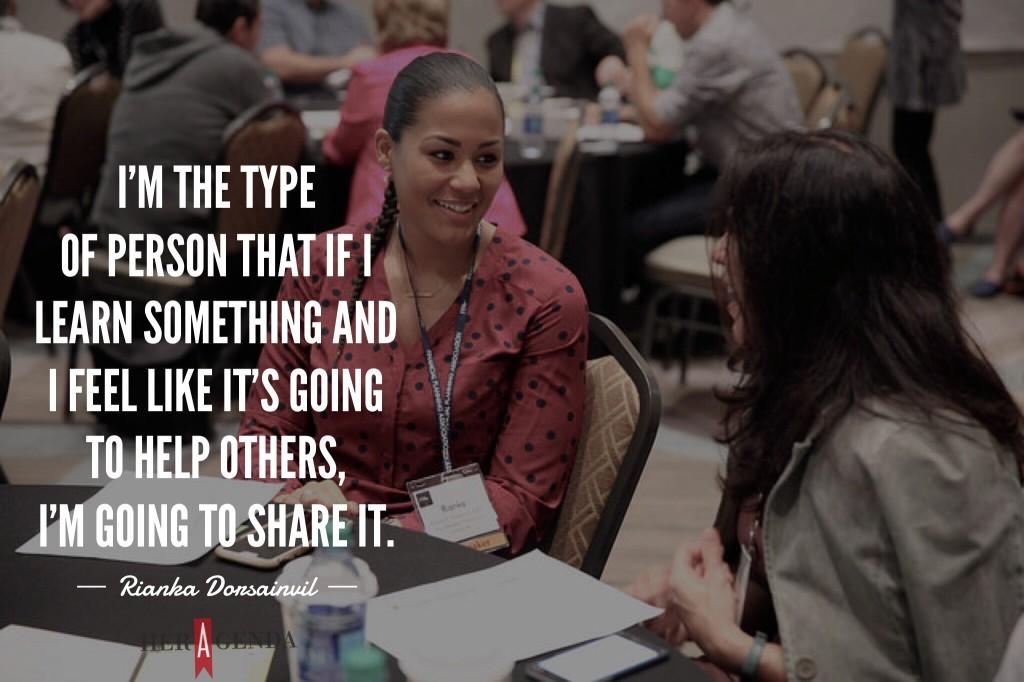
I’m the type of person that if I learn something and I feel like it’s going to help others, I’m going to share it. Even in college, I became the go-to person on campus for financial questions and helped my classmates understand the financial implications of their actions. Since then, I decided that my generation is going to be educated when it comes to personal finance. And I know I can’t help everybody, but for those I can help, I will.
As far as mentors, there are so many great men and women in this profession. Financial planning is a giving profession, so if you ask for help, there are people who want to help you.
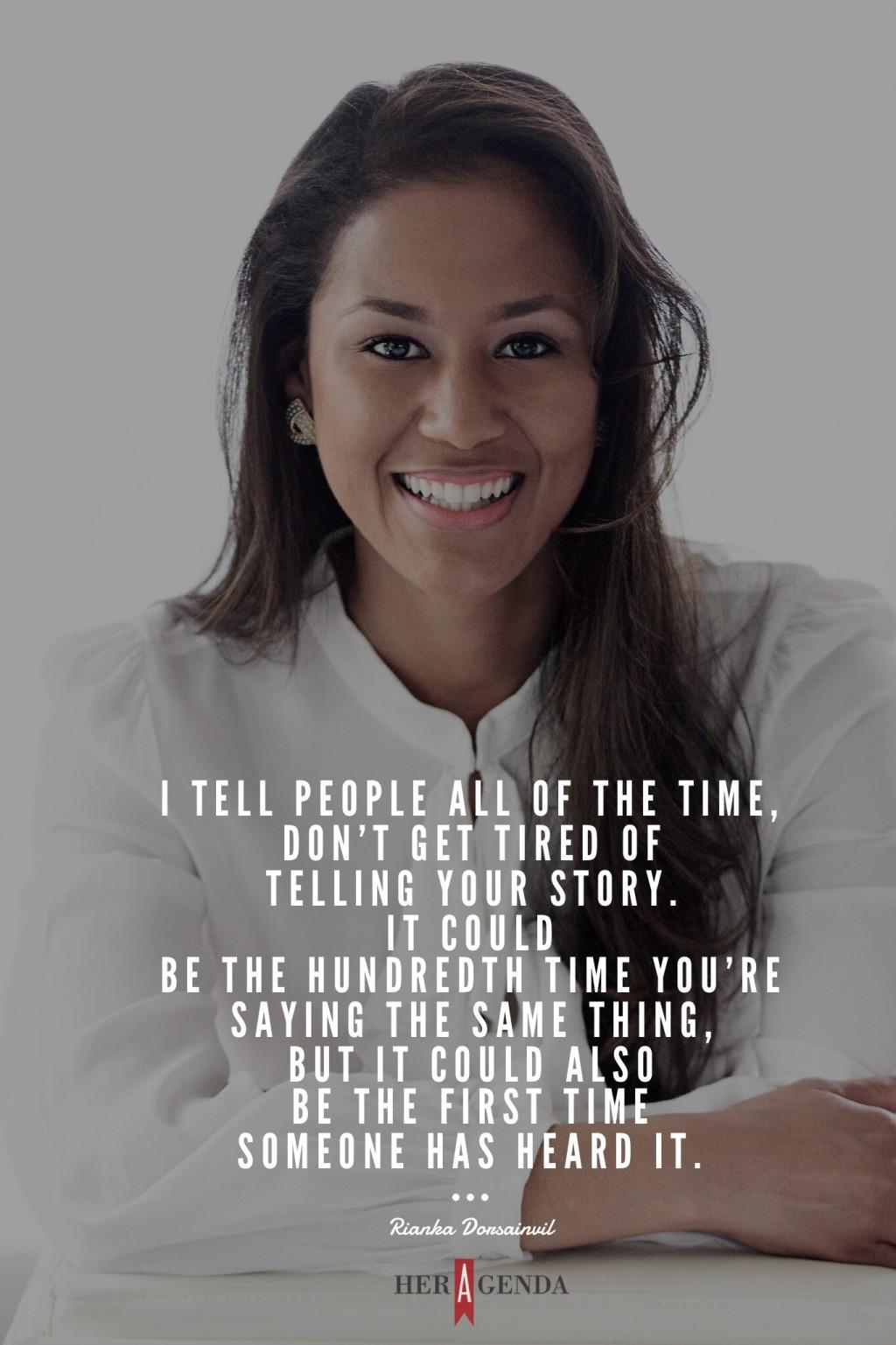
Her Agenda: What keeps your inspired and motivated?
Rianka Dorsainvil: The reason why I’m so driven by what I do is because there are clients who need my help, but there are also young professionals who are looking up to me. I tell people all of the time, don’t get tired of telling your story. It could be the hundredth time you’re saying the same thing, but it could also be the first time someone has heard it. Taking the CFP® exam was hard as heck and I failed it a couple of times, but I eventually passed. When I was in the process I often asked myself, ‘Why me? I’m smart and confident, but why am I failing the exam?’ I didn’t know the purpose until I became a mentor to a lot of young financial planners—some who pass the first time and some who don’t. Whenever I share my story, my mentees are shocked when they find out that I didn’t pass my exam the first time.
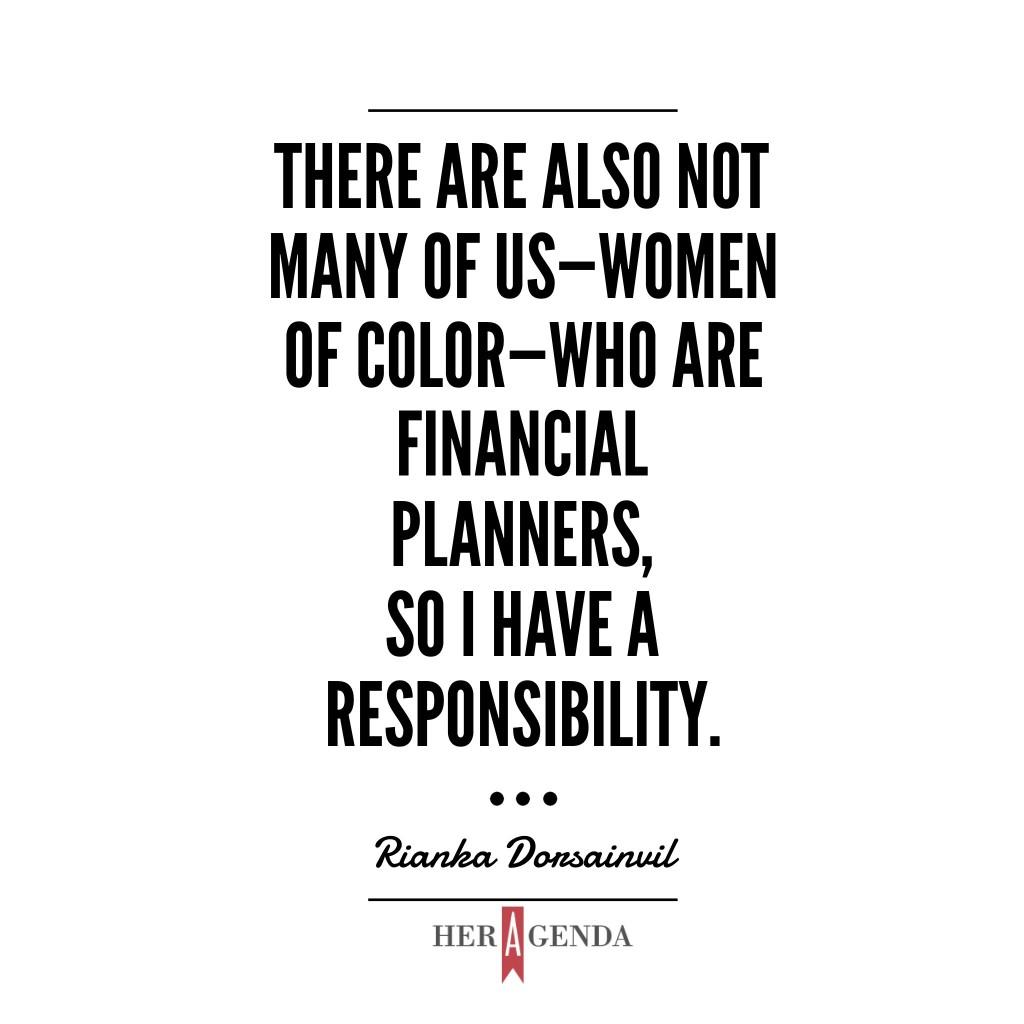
There are more than 400,000 people who call themselves financial advisors. Only about 80,000 are CERTIFIED FINANCIAL PLANNER professionals, so we’ve already separated ourselves from the masses. As CFP® pros, we have continuing education credits that we have to fulfill, so we’re constantly learning. There are also not many of us—women of color—who are financial planners, so I have a responsibility. I can’t just continue to stay behind the curtain. I have to volunteer and raise my hand for leadership positions so other women of color can say, ‘I see her in me, so I can do that too.’
[Editor’s note: This post is sponsored by CFP. It was published on January 29th, 2018. It has been edited for length and clarity.]

